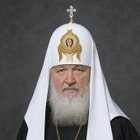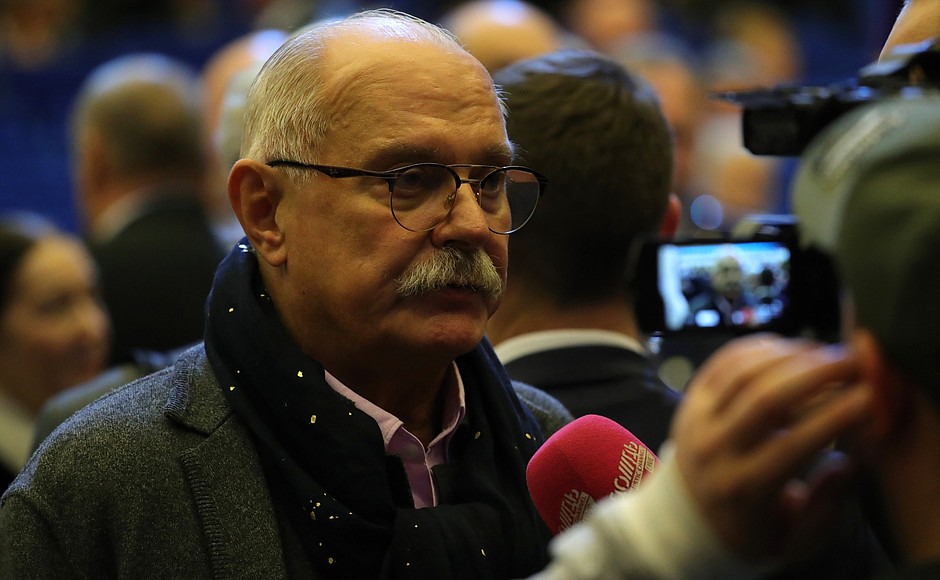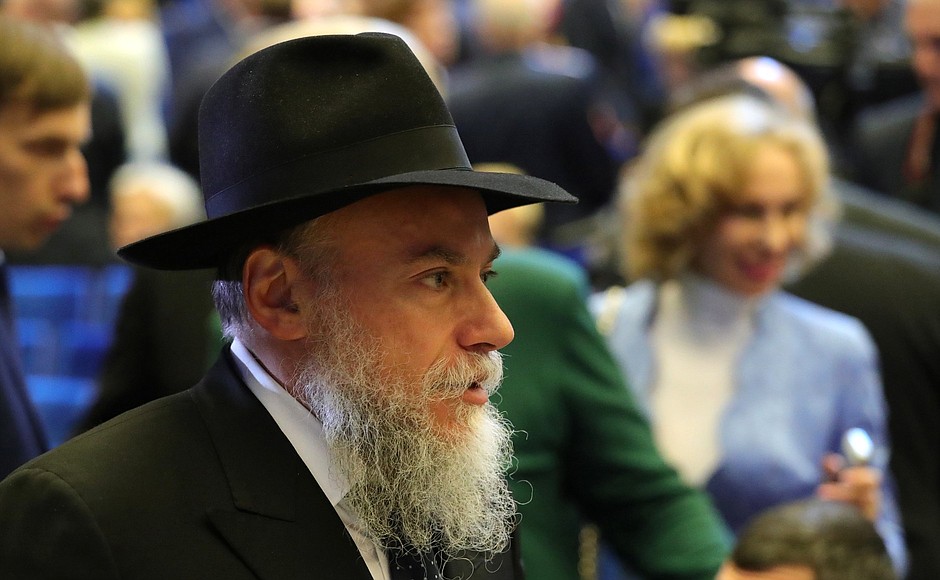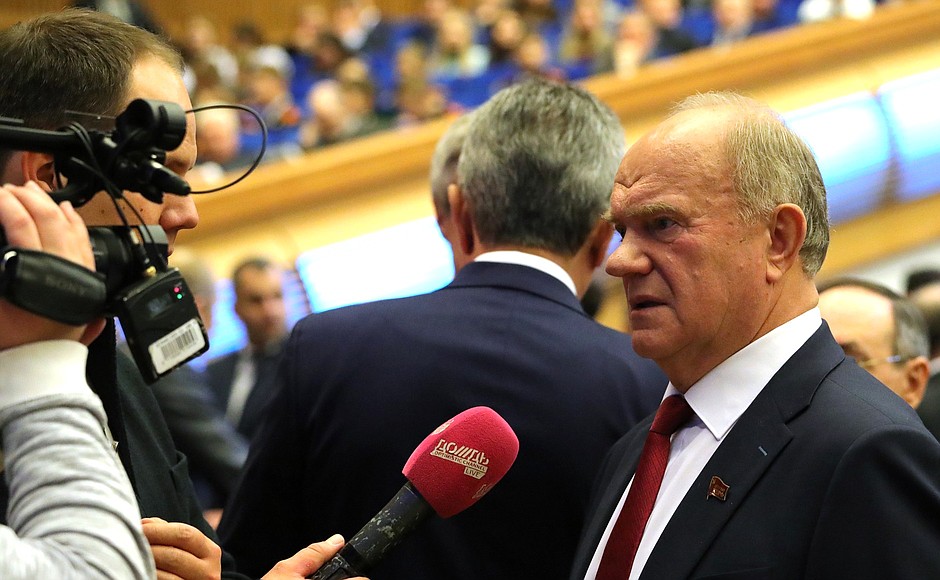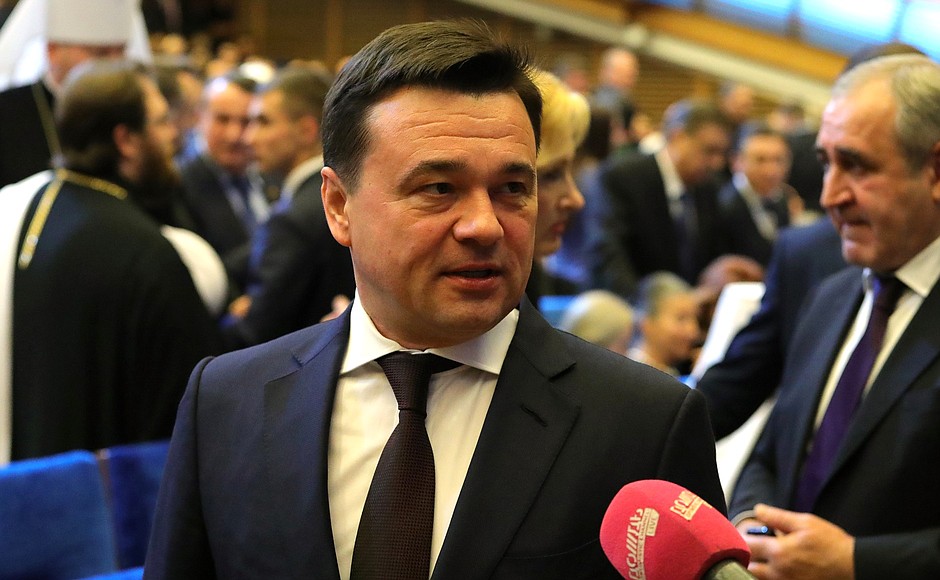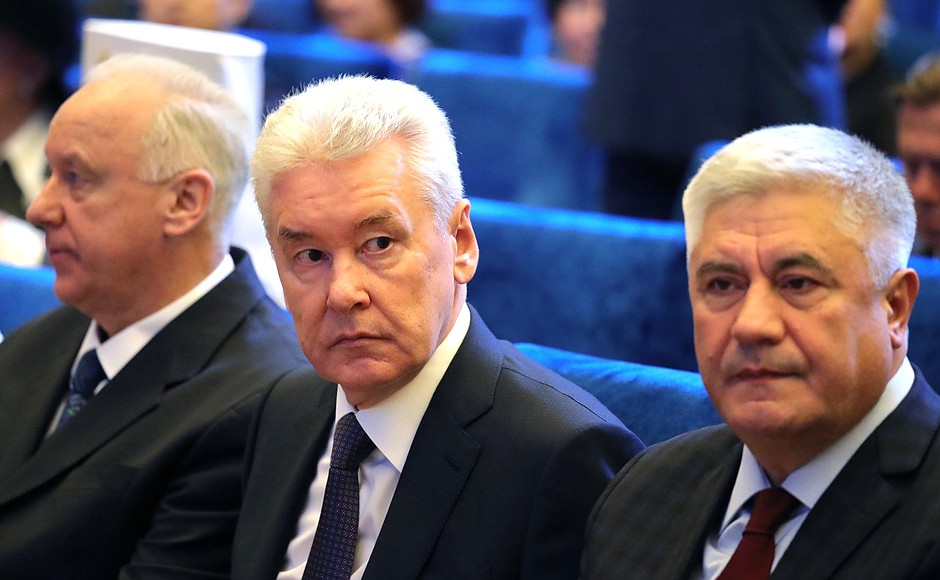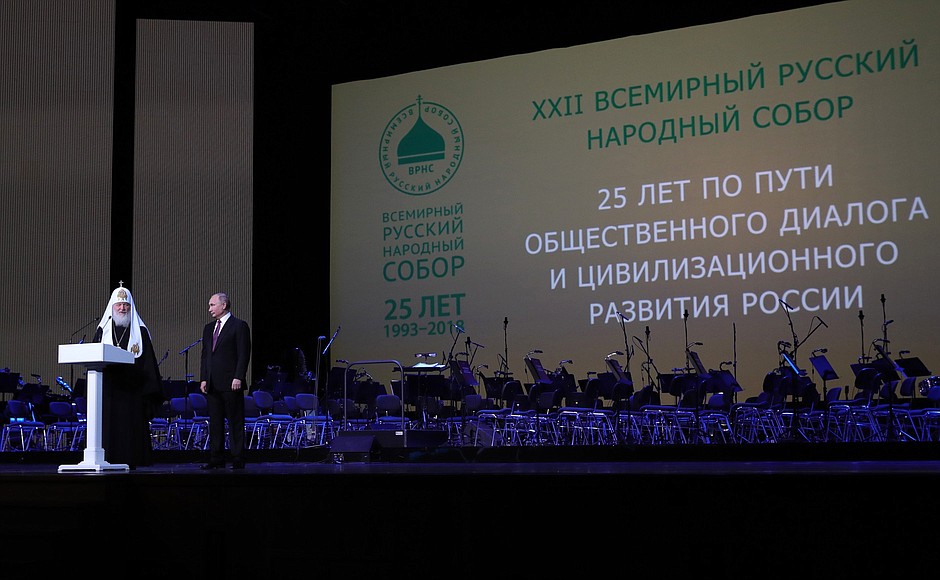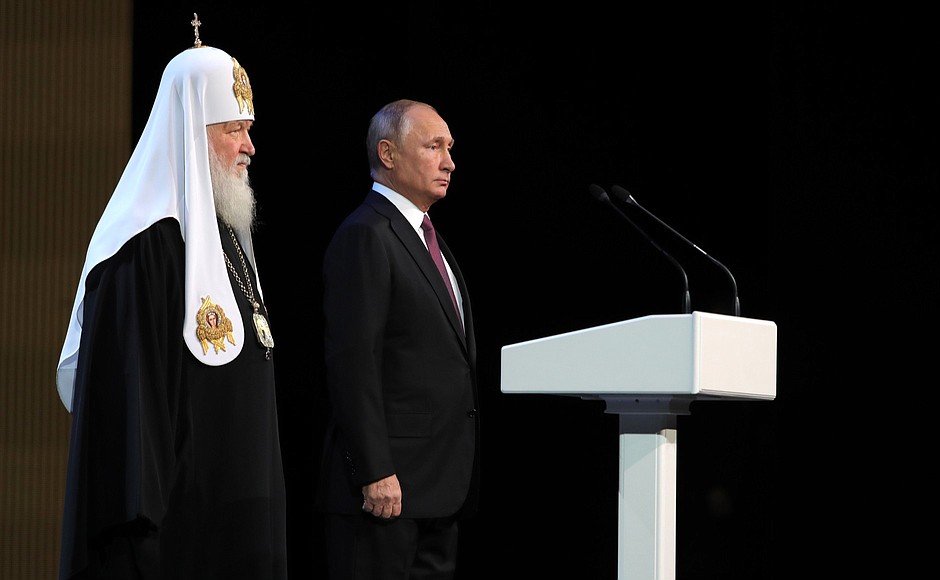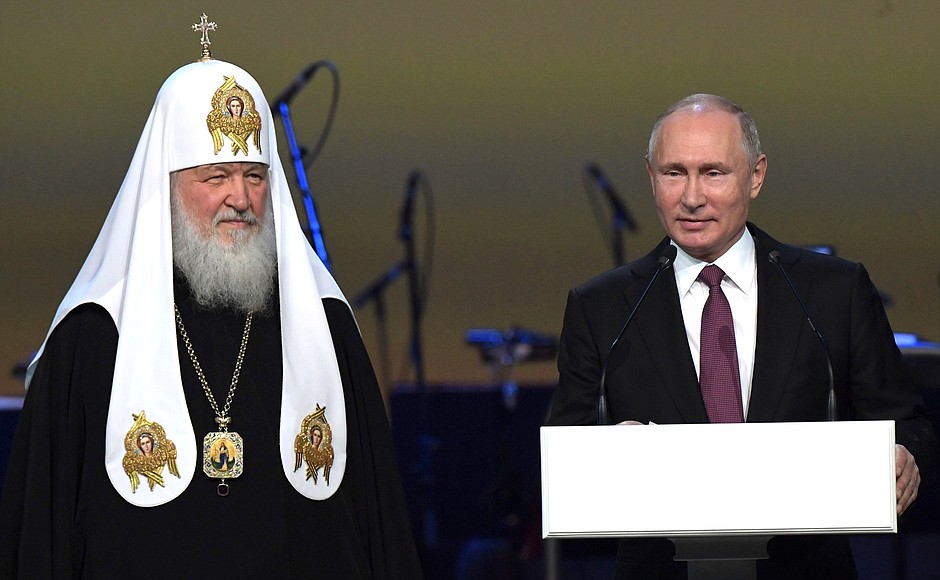Representatives of all branches of government, leaders of public and religious associations, researchers, teachers, cultural workers and delegates of Russian communities from the former Soviet republics and beyond were invited to participate in the Council’s work.
The World Russian People’s Council international public organisation was established in May 1993. Patriarch Kirill of Moscow and All Russia has been heading the Council since February 2009.
* * *
Address at the World Russian People’s Council
President of Russia Vladimir Putin: Your Holiness, friends.
Please accept my heartfelt greetings to the 22nd World Russian People’s Council. You know, here is what I was thinking just now.
A lot has changed in the life of our country and our people. This Kremlin hall that used to be unofficially known as the Palace of Congresses is now hosting the Russian People’s Council. This is indeed a sign of fundamental change in our society.
Established under the aegis of the Russian Orthodox Church, for the past 25 years, a quarter of a century, this forum has played a significant part in the public and social life of Russia and the entire Russian-speaking world by actively promoting solutions to social, educational and humanitarian problems, preserving the interethnic and interfaith accord, and educating young people based on the values of patriotism and civic consciousness.
It is important that representatives of all power branches and different political forces as well as cultural activists, education professionals and the clergy of traditional religions take part in the work of the council.
At the same time, you never set narrow ethnic or other limits and are always open for an interethnic, intercultural and interfaith dialogue. These traditions – the traditions of mutual understanding – have always strengthened our large family, the people of Russia.
Let me also note your active support of our brothers abroad. I mentioned the importance of this work yesterday at the meeting of the World Congress of Compatriots.
In line with the council’s motto – created to unite – you do a lot for national consolidation. I am confident that only a unified and close-knit society is able to face the most serious historical challenges, achieve real breakthroughs and amazing results, counter any pressure from the outside and protect our sovereignty and spiritual and historical bonds.
We can see what efforts are being taken today to “reformat” the world and destroy the traditional values and the cultural and historical spaces that have been forming for centuries.
The goal is to create various bleak “protectorates,” because it is easier to rule peoples who are disconnected, have no national memory and are turned into simple vassals, and to use them as bargaining chips.
Unfortunately, we can see this in many regions of the planet, including the post-Soviet space. Crude nationalism and anti-Russian sentiments are also used. Brazen and unbridled interventions are being made into the life of the church. This policy can have very serious consequences. It is dangerous.
I am confident that life will return everything to normal, because it is impossible to make people go against their faith, their traditions, their family and, ultimately, against truth, justice and common sense.
Friends, both today's meeting and most discussions will be dedicated to the civilizational development of Russia and the understanding of its role in the current world order.
These issues are undoubtedly very relevant today. It is now being decided how the world will look in the future, in the coming decades.
Will this be a world of monologue and the rule of force, or a world of dialogue and mutual respect? How well will technology combine with ethical and moral values?
There are more questions than answers so far. But there is one thing I am certain about: the voice of Russia will resound with dignity and confidence in the future world.
It is defined by both our tradition and internal spiritual culture, our identity and finally, by the history of our country as an authentic civilisation, a unique one, but one which does not assertively and aggressively claim its exceptionalism.
Because it is impossible to imagine the history of humanity without such unique civilisations as India, China, Western Europe, America and many others. It is really a multifaceted complexity where each facet supplements and enriches the others.
I would like to remind you of the words said by a prominent Russian thinker of the 19th century, Nikolai Danilevsky: no civilisation can call itself supreme, the most developed one.
Today the understanding of the complexity of civilizational development is the foundation for the multipolar world and for defending the principles of international law.
The weight, the influence of the poles on the common development, of course, will be determined by their economic, scientific, cultural, spiritual and human potential.
This is why our common efforts are so important, for they are aimed at uniting, consolidating the work of civil society and the state. This is what our ancestors called a council intellect, a council experience.
I would like to thank Your Holiness for the big contribution to the activity of the council, and its participants for the mission that you have been doing for the past 25 years, a very important mission for our society and the state.
I wish you success.
Thank you for your attention.
<…>
